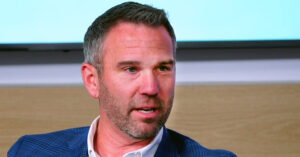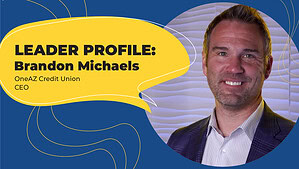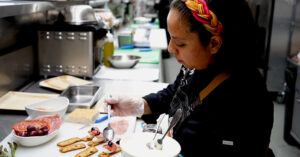Welcome back for the twelfth episode of the Community Collaborative series where we are joined by local leaders and change-makers just like you. As always, this episode follows our conversation with local experts who have been and are on the frontlines of creating change and action in the community and beyond. These conversations not only shine a light on what is being done but serve as a reminder that change is possible.
In this episode, we’ll continue our discussion surrounding diversity and inclusion in our Arizona businesses. We’ll also be doing something new as we look toward another important community aspect, education. Join us as we take a look inside Arizona schools and how they are approaching diversity and inclusion.
Community Collaborative co-host/producer and Black Chamber of Arizona CEO Robin Reed is back with co-host/producer and Arizona Hispanic Chamber of Commerce CEO Monica Villalobos to lead today’s conversation with some notable change-makers in the community. Joining Reed and Villalobos include Channel Powe, CEO at Powe Power and outgoing President at Balsz School District, Stephanie Parra, Executive Director at ALL in Education, and Jackie Hunter, Sr. Director of diversity and inclusion and talent pipeline at Banner Health.
In addition to honest and inspiring conversation, this series serves as a safe space to discuss the concerns and emotions that come along with the reality of diversity and inclusion struggles (5:53). This week we bring to you a special performance by local artist Kylelashay Draper. Kylelashay is a talented author, singer, and slam poet who has the ability to capture the raw emotions many are feeling. Check out her performance addressing “what makes America great” here:
The Power Of Belonging
In this episode, we introduce a new segment brought to you by Banner Health called The Power of Belonging.
Banner Health’s Jackie Hunter explains the power of healing through resiliency (9:52). “We have to acknowledge, we have to hear, and we have to see,” Hunter explains as she goes on to reveal how Banner Health’s journey began by using the Power of Belonging series to create a safe space for all employees (10:23).
She expresses that “It’s important to be vulnerable” in sharing our stories as they have the power to bring us together and give hope, enabling us to move towards forgiveness (11:25). She continues to unpack the importance of bringing people together, not through fear, but through allyship (12:30). She shares inspiring breakthrough moments that highlight the importance of sharing individual stories (13:06).
Reed joins Hunter to discuss the power and importance of psychological safety. Hunter explains what that looks like within Banner Health as they help employees navigate through emotions of the pandemic and other concerns impacting their lives (14:37).
Villalobos, who has personally experienced the inclusive atmosphere at Banner Hospital, asks Hunter to explain how Banner health has been successful in embedding inclusion, not only in their culture but their DNA (17:30). “Everyone has a story,” she reminds us, explaining the role of conversing and truly listening have in creating that sense of belonging (17:59).
Don't Miss These Highlights
The conversation continues as our leaders look at the efforts of diversity and inclusion in the education space (19:09). Powe kicks off the conversion by describing her experience in the Balsz school district, explaining how “data-based decisions” drive action (19:45).
She expresses the urgency for action lies in the need for intentional actions like “culturally responsive teaching” combined with “research-based curriculum.” There is a need for students to see themselves in the curriculum they learn, she explains (20:38).
She explains how strong leadership and action by the government board presents a powerful opportunity the implement actions and change surrounding diversity, inclusion and equity in schools (21:55). The board, she explains, has the power to “disrupt disparities, create a culture of inclusion, and hire those that reflect the demographics of our districts.”
Villalobos comes in to point out that “equal funding does not equate to equity” and that there is a need for mitigation and action from school administration, as well as local businesses and policymakers, to ensure that equity comes to fruition(24:13). Education “is a non-negotiable,” she says, as it serves as a foundation for changing the system (25:32).
Reed agrees that “the way to deal with systemic and structural inequities is to address them with systemic and structural responses” (26:05). He continues to explain how tackling the problems in the lower levels of education have the power to eliminate the problems faced in adulthood.
Parra comes in to explain the ALL in for Equity framework used by ALL in Education as a means to guide decision-makers toward equity (30:25). As she unpacks the meaning behind the framework, she explains the importance of evaluating the impact of decisions on minority communities and questioning the impact of “their own assumptions and biases.”
There is a need to include community stakeholders in the conversations surrounding these topics and decisions. She also explains the need for more opportunities for all members of the student population. “At the end of the day,” she reminds us, “equity means that we are creating opportunity and advancing justice for the communities that need it most” (32:14).
Villalobos agrees that there is a need to give parents, educators and students “the tools they need to succeed and be able to pivot and shift” in the way they perceive and engage in education (36:00). She continues by emphasizing how programs like All in Education’s Parent Academy allow a springboard for parents and educators to continue to have high expectations for our children while giving them the tools to do so.
Reed concludes the conversation around education by emphasizing that “change happens when people take action” (38:25). Therefore, he explains, there is a need for resources to help people take action in alignment with the future we are hoping for.
Actions We Can All Take
Our Rally Point Partner, Arizona Federal Credit Union dives into actionable advice for businesses as they implement diversity and inclusion efforts, such as employee resources groups (27:30):
- – Take employee feedback and put it into action
- – Implement employee resources groups to allow people a space for feedback
- – Include opportunities for community service and professional development
- – Let employees lead you to the direction diversity and inclusion efforts need to go
- – Avoid over-planning the course of diversity and inclusion to keep it real and relevant.
- – Get people engaged and inspired at the jobs and beyond.
- – Seek executive-level sponsorship.
- – Use employee resource groups as focus groups for specific feedback regarding current issues.
With a new year comes a new opportunity for change. As we begin to move past the recent events in our nation’s capital, we invite business owners, local leaders, and community members alike to join in on the mission to heal some of the deep-rooted issues plaguing our communities and nation. As we move forward into 2021, learning how to motivate for this change is essential. There is power in resiliency, forgiveness and vulnerability to help move the needle.
Education is a powerful tool. By tuning into this series, you are taking a step in the right direction. We thank you and encourage you to continue by taking action. Remember, everyone has something to bring to the table when it comes to making these changes that have the power to change the course of the future.
About The Community Collaborative
Community and business leaders and individuals who want to educate themselves on diversity issues will find the series informative and educational. And anyone who wishes to get involved will have ready access to resources featured in each program.
The video series may be streamed for free through the STN app. Viewers may subscribe through STN’s website or by downloading the STN app on the App Store or Google Play.
Each program in the series will provide details on how to get involved in featured activities and initiatives. To be featured in “The Community Collaborative” series or other STN programming, contact us at 480.967.7088.
Every day, there are leaders on the front lines of the fight to improve life in our community. STN provides the platform to tell their and their communities’ stories with video series on leadership philosophies and active efforts to make positive change in our region.





